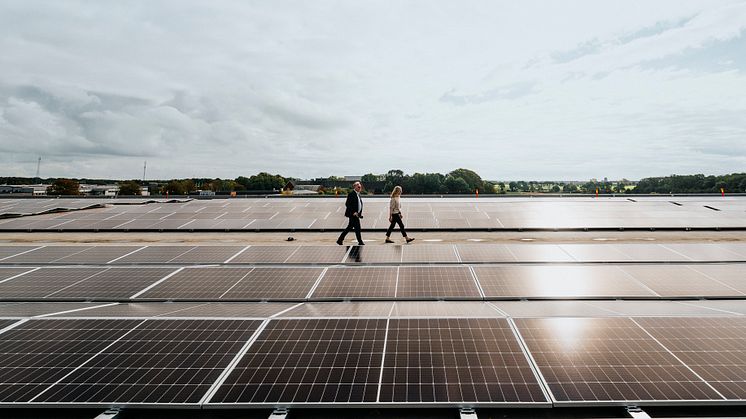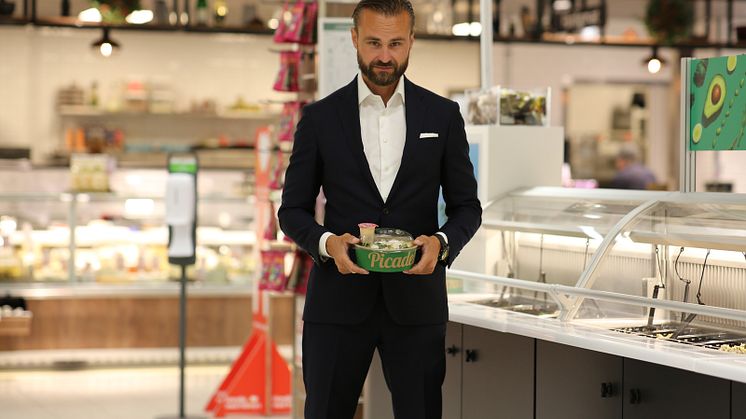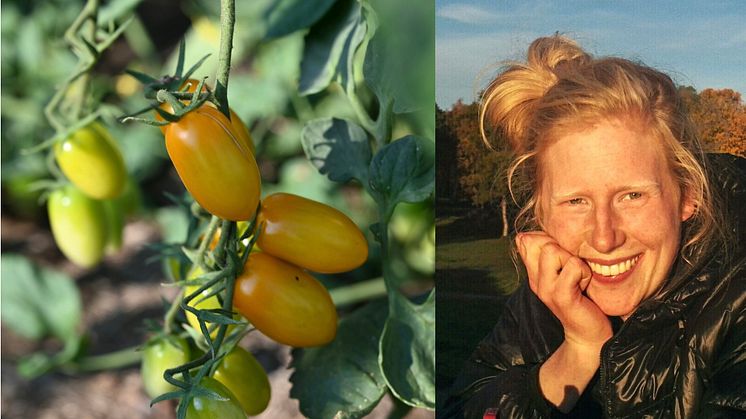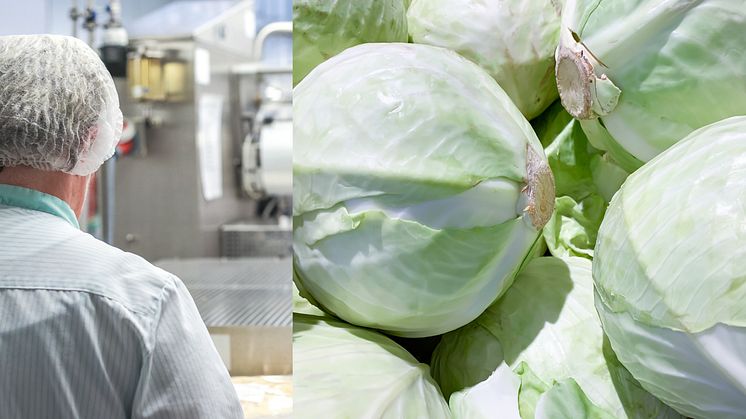
Press release -
Greenfood reports record decrease in CO2e emissions for 2023
2023 was a record year for Greenfood. The group has reduced greenhouse gas emissions (Scope 1 and 2) per ton of food sold by a significant 60.2 percent (baseline year 2020), thus aligning with the group's ambitious reduction targets for 2025.
In 2021, Greenfood issued a sustainability-linked bond tied to the goals in Greenfood's sustainability framework. One of the goals is to reduce emissions in its operations (Scope 1 and Scope 2) by 55 percent per ton of food sold by 2025.
As Greenfood releases its annual summary and Q4 report, it is clear that the group reports a significant decrease in greenhouse gas emissions in Scope 1 and 2. For 2023, there has been a reduction of 60.2 percent per ton of food sold from the baseline year 2020.
"The reduction is mainly due to a comprehensive approach to climate and energy issues and investing in heat recovery and renewable energy. Going forward, we expect the reduction to accelerate further with the upcoming installation of solar panels at our 44,000 square meter facility in Helsingborg," says Lisa Isakson, Head of Sustainability at Greenfood.
Another goal of the bond has been achieved earlier. In 2023, Greenfood had its climate targets approved by the Science Based Targets initiative (SBTi). SBTi is a global standard that helps companies set scientifically based climate targets in line with what is required to achieve the Paris Agreement. Greenfood has committed to the most ambitious SBTi target: keep warming below 1.5 degrees.
With these advancements, Greenfood has achieved two out of four sustainability goals linked to its sustainability-linked bond.
Reasons for the record decrease
- Several companies in the group have switched to renewable electricity.
- Greenfood has invested in new cooling systems and improved working methods, leading to energy efficiency.
- Greenfood has transitioned from natural gas to biogas at the Helsingborg facility.
- ICE-poweredd company cars are gradually being replaced with electric cars and plug-in hybrids.
Next steps to reduce the group's total climate impact (Scope 1, 2, and Scope 3)
- Greenfood is commencing operation of its new solar power plant at Greenhouse, the group's 44,000 square meter facility in Helsingborg.
- Greenfood continues the work with a comprehensive assortment review introducing more climate-smart plant-based products.
- Implement strategies for lower climate impact in the production of purchased products.
- Transition to more environmentally friendly transportation.
How Greenfood reports its climate impact
Greenfood measures its climate impact according to the GHG Protocol guidelines in Scope 1, 2, and 3, and the result is also linked to Greenfood's sustainability-linked bond.
Scope 1 includes direct greenhouse gas emissions from sources owned or controlled by Greenfood. Scope 2 covers indirect greenhouse gas emissions from purchased energy. This includes consumption of purchased electricity, district heating, and district cooling. Scope 3 covers indirect greenhouse gas emissions from our value chain, such as inbound and outbound transportation, production of goods we purchase, business travel, and waste management.
For more information:
Lisa Isakson, Head of Sustainability
Lisa.isakson@greenfood.se
070-241 14 00
Topics
Categories
Greenfood is a leading European player creating healthy and sustainable food that is tasty, affordable, and easily accessible. From Picadeli's self-service salads and ready-made meals to fruits and vegetables directly from farms spread across a large part of the world. Through our three business areas, Greenfood provides fresh, healthy, plant-based food at various stages of processing to customers in convenience and retail, as well as hotels, restaurants, and catering.
For 2023, Greenfood's turnover amounted to SEK 5.7 billion and the Group operates in eight countries across Europe as well as in the US with headquarters in the historic heart of the business: Helsingborg, Sweden. Greenfood's portfolio includes several strong brands, for example: Picadeli, Daily Greens, SallaCarte, Green Deli, and Ahlgood. Read more at www.greenfood.se.
Greenfood's climate targets are approved by the Science Based Targets initiative, with a commitment to substantially reduce CO2 emissions.





